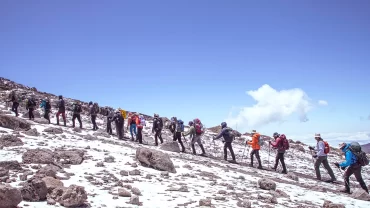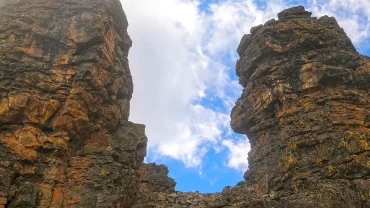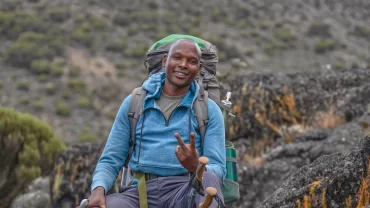Immersive Encounters with Local Communities
A safari in Tanzania is often associated with the thrill of spotting lions on the prowl or witnessing the Great Migration in the Serengeti. However, beyond the breathtaking landscapes and extraordinary wildlife, Tanzania is also home to vibrant cultures and ancient traditions. A cultural safari in Tanzania offers travelers a deeper, more meaningful connection with the land, its people, and their way of life. From the legendary Maasai warriors to the coastal Swahili traders, each community has a rich heritage waiting to be discovered.
1. The Maasai People – Guardians of the Savannah
No cultural safari in Tanzania is complete without an encounter with the Maasai, one of Africa’s most iconic tribes. Known for their striking red attire, intricate beadwork, and warrior traditions, the Maasai have maintained their way of life despite modern influences.
- Visiting a Maasai Boma: Travelers can step into a traditional Maasai homestead (Boma), where they’ll experience daily life firsthand—greeting elders, learning about cattle herding, and watching traditional dances.
- Cultural Significance: The Maasai’s semi-nomadic lifestyle revolves around livestock, which holds deep social and economic value.
- Community Impact: Many Maasai villages use tourism as a means of supporting education, healthcare, and conservation efforts.
2. The Hadzabe & Datoga Tribes – Tanzania’s Last Hunter-Gatherers
Deep in the Lake Eyasi region, the Hadzabe people continue to live as they have for thousands of years—hunting with bows and arrows, foraging for food, and moving with the seasons.
- Hadzabe Hunting Experience: Visitors can join a Hadzabe hunting party at dawn, witnessing their exceptional tracking skills and primitive yet effective hunting methods.
- The Datoga Blacksmiths: The neighboring Datoga tribe, known for their blacksmithing skills, forge tools, jewelry, and arrowheads using traditional methods passed down through generations.
- Authentic Interaction: Unlike staged tourist experiences, visiting these communities offers a raw, unfiltered look at a vanishing way of life.
3. Chagga Culture – Life on the Slopes of Kilimanjaro
Nestled on the lush slopes of Mount Kilimanjaro, the Chagga people have thrived as skilled farmers and traders for centuries. Their history is interwoven with Tanzania’s coffee industry and legendary resistance against the Maasai.
- Coffee Farm Tours: A visit to a Chagga village includes a hands-on coffee-making experience, from picking ripe beans to roasting and brewing them the traditional way.
- Banana Beer Brewing: Chagga families still prepare local banana beer, a staple of their social gatherings.
- Exploring Chagga Caves: These underground caves, once used as hideouts during inter-tribal conflicts, reveal a fascinating part of Chagga history.
4. The Swahili Coast – A Blend of African, Arab, and European Influences
The coastal regions of Tanzania, particularly Zanzibar, offer a unique cultural experience shaped by centuries of Swahili, Arab, Indian, and Portuguese interactions.
- Stone Town Exploration: A UNESCO World Heritage Site, Stone Town is a maze of narrow alleys, historic mosques, and bustling markets where visitors can learn about the Swahili culture and its influences.
- Spice Farm Visits: Zanzibar’s spice plantations provide an aromatic journey through the island’s rich history in the spice trade.
- Traditional Dhow Sailing: Taking a sunset cruise on a dhow (traditional wooden sailing boat) is a must-do, offering a glimpse into the maritime heritage of the Swahili people.
5. Cultural Festivals and Events in Tanzania
For those who time their visit right, Tanzania’s festivals offer an immersive cultural experience.
- Ngorongoro Marathon: A unique blend of sports and Maasai culture, held annually in the Ngorongoro Highlands.
- Nane Nane Farmers’ Festival: Celebrated every August, this festival showcases Tanzania’s agricultural diversity and innovation.
- Sauti za Busara Music Festival: One of Africa’s biggest music events, bringing together musicians from across the continent to perform in Zanzibar’s Stone Town.
6. Responsible Cultural Tourism – Supporting Local Communities
A cultural safari in Tanzania should not only be enriching for visitors but also beneficial to the communities involved. Travelers can ensure they have a positive impact by:
- Choosing Ethical Tour Operators: Supporting companies that collaborate directly with local communities and contribute to sustainable development.
- Respecting Local Customs: Learning a few Swahili phrases, dressing modestly in rural areas, and seeking permission before taking photos.
- Supporting Local Artisans: Purchasing handmade beadwork, carvings, and textiles from local markets helps sustain traditional crafts and supports families.
Conclusion
A cultural safari in Tanzania offers a deeper, more personal connection to this diverse and beautiful country. Whether sharing stories around a Maasai fire, learning the art of coffee brewing with the Chagga, or exploring the rich history of Zanzibar’s Swahili coast, these experiences go beyond wildlife and landscapes. By engaging with Tanzania’s people, visitors leave not only with incredible memories but also with a richer understanding of the country’s soul.
Ready to go beyond game drives? Plan a cultural safari and experience the true heart of Tanzania!





Comment (0)